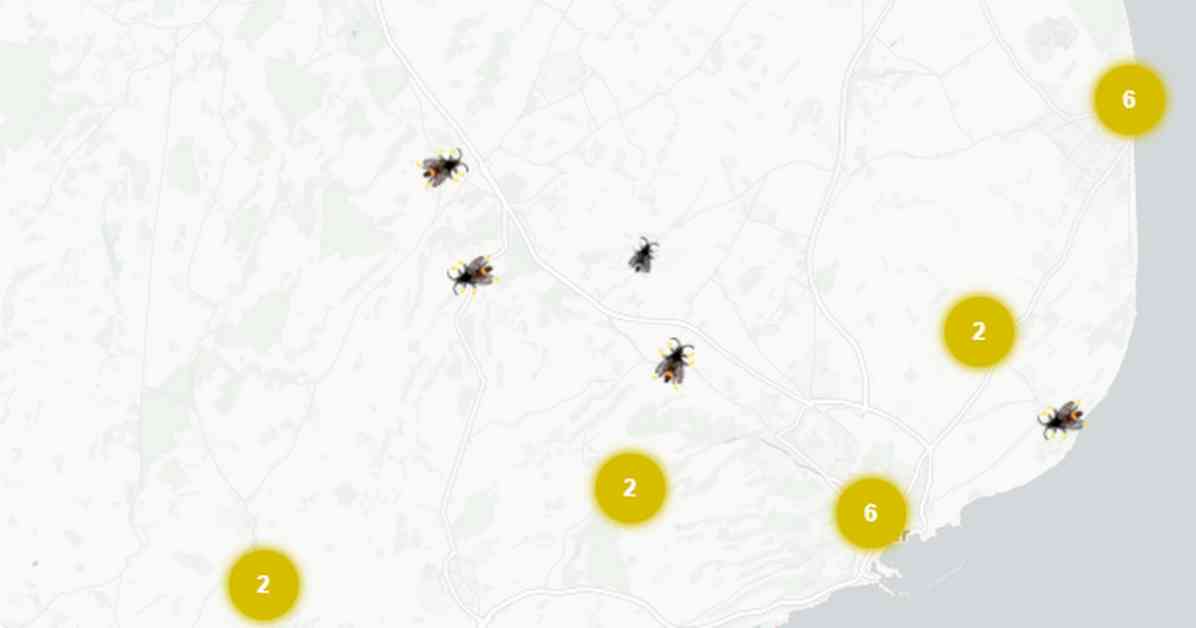Beekeepers are urging the public to be able to recognize the invasive Asian hornet to help protect the UK’s ecosystem. Last year, over 20,000 false reports of the bee-killing insect were made, making it difficult for the National Bee Unit (NBU) to respond quickly to actual sightings. A single Asian hornet can eat up to 50 honey bees at once, and a nest can produce hundreds of queens, males, and thousands of worker hornets. To prevent the spread of these pests, sightings should be reported through the Asian Hornet Watch app so that nests can be destroyed promptly.
During Asian Hornet Week, which lasts until September 8, 1,000 members of the British Beekeepers Association are on hand to assist the NBU when reports are made through the app. However, there is concern that many people struggle to differentiate between Asian hornets and other native species, hindering efforts to control the spread of these insects in the UK. Incorrect reports of Asian hornets have been a problem in the past, with over 20,000 false reports made in 2023 alone.
Since 2016, there have been 126 confirmed sightings of Asian hornets, with a record 57 sightings reported last year – 41 of which were in Kent. In 2024, there have been 25 confirmed sightings so far, including 14 in Kent. It is crucial that the public can distinguish Asian hornets from other species. Asian hornets are slightly smaller than European hornets and have yellow legs, an orange face, and a dark black/brown body with a yellow or orange stripe on the lower abdomen.
Diane Drinkwater, chair of BBKA, emphasizes the importance of educating the public on identifying Asian hornets to prevent them from establishing themselves in the UK. Kate Wilson, Head of the National Bee Unit, highlights the damage Asian hornets can cause to native pollinators and encourages people to report sightings through the Asian Hornet Watch app or online.
To report a sighting of an Asian hornet, you can use the Asian Hornet Watch app, available for both Android and Apple devices, report online, or email alertnonnative@ceh.ac.uk. Being able to recognize and report Asian hornets accurately can make a significant difference in protecting the UK’s ecosystem from these harmful pests.










